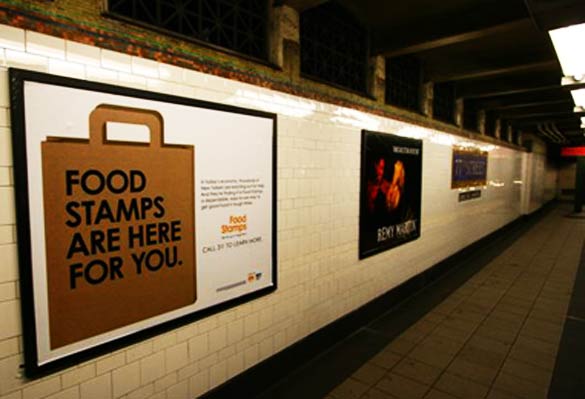Local Pols File Suit Against City, Claim Unequal Distribution Of Sandy Food Stamps

City Councilman Lew Fidler, Assemblyman Alan Maisel and three other pols from around Brooklyn filed a lawsuit Wednesday against the city’s Human Resources Administration (HRA) and its commissioner Robert Doar, claiming that the city’s decision to limit emergency distribution of food assistance was “arbitrary and capricious,” and violated law.
The suit argues that HRA’s decision to limit Disaster Supplemental Nutrition Assistance Program (DSNAP) to 10 zip codes and two partial zip codes had no rationale, and caused additional suffering for Sandy victims in Canarsie and elsewhere. The federal government identified 82 zip codes hit by the storm, and the city should have opened the program to anyone in those zip codes, they argue.
From the press release:
City Councilman Lew Fidler (D-46) and Assemblyman Alan Maisel (D-59) announced today that they had filed suit against the City and its HRA Commissioner Robert Doar for the City’s arbitrary decision to exclude some hard hit communities from the post-Sandy extension of food benefits through the D-SNAP program.
Though the City has asserted that 82 zip code areas were impacted by the storm, only parts of 12 were deemed eligible for the program which allows emergency food stamp help to needy residents. Eligibility is not restricted to current food stamp holders only.
Among the communities excluded from the program was Canarsie, an area represented by both Fidler and Maisel. “When I was first apprised of the decision, I was aghast,” said Fidler. “I reached out directly to Commissioner Doar who was completely unable to articulate any rationale for the exclusion of the community which was extremely hard hit. All he could tell me was that his staff had worked hard to make the decision in consultation with the State and the USDA (Dept. of Agriculture).”
… The matter is currently scheduled to be heard on an expedited basis before Justice Carl Landicino of the Supreme Court, Kings County on February 8.
Brooklyn Bureau has a little more on D-SNAP, and a response from HRA:
In a statement, HRA said, “In concert with our state and federal partners, we administered a program that met the needs of those most impacted by the storm. We will contest any litigation on the matter.”
According to figures provided by the state on January 10, HRA oversaw the payment of $5.7 million in D-SNAP benefits. Most (about $3.4 million) went to 26,123 people who were already getting food stamps but qualified for more assistance because of the impact Sandy had. The rest, some $2.3 million, went to 4,772 people who received the one-time D-SNAP payment.
HRA says it offered several kinds of food aid after Sandy, including expediting deliveries to food pantries and soup kitchens, securing a waiver so food stamp recipients can use their benefits to buy hot or prepared meals and sending an automatic replacement benefit to 300,000 existing food stamp households in 82 ZIP codes. The pols’ lawsuit actually cites that broader program in criticizing the 12-ZIP code limit to D-SNAP.
After other elected officials, including Council Speaker Christine Quinn and Public Advocate Bill De Blasio publicly criticized the decision in December, Mayor Bloomberg said limiting D-SNAP to 12 zip codes was the most responsible approach.
Here’s a copy of the lawsuit:




